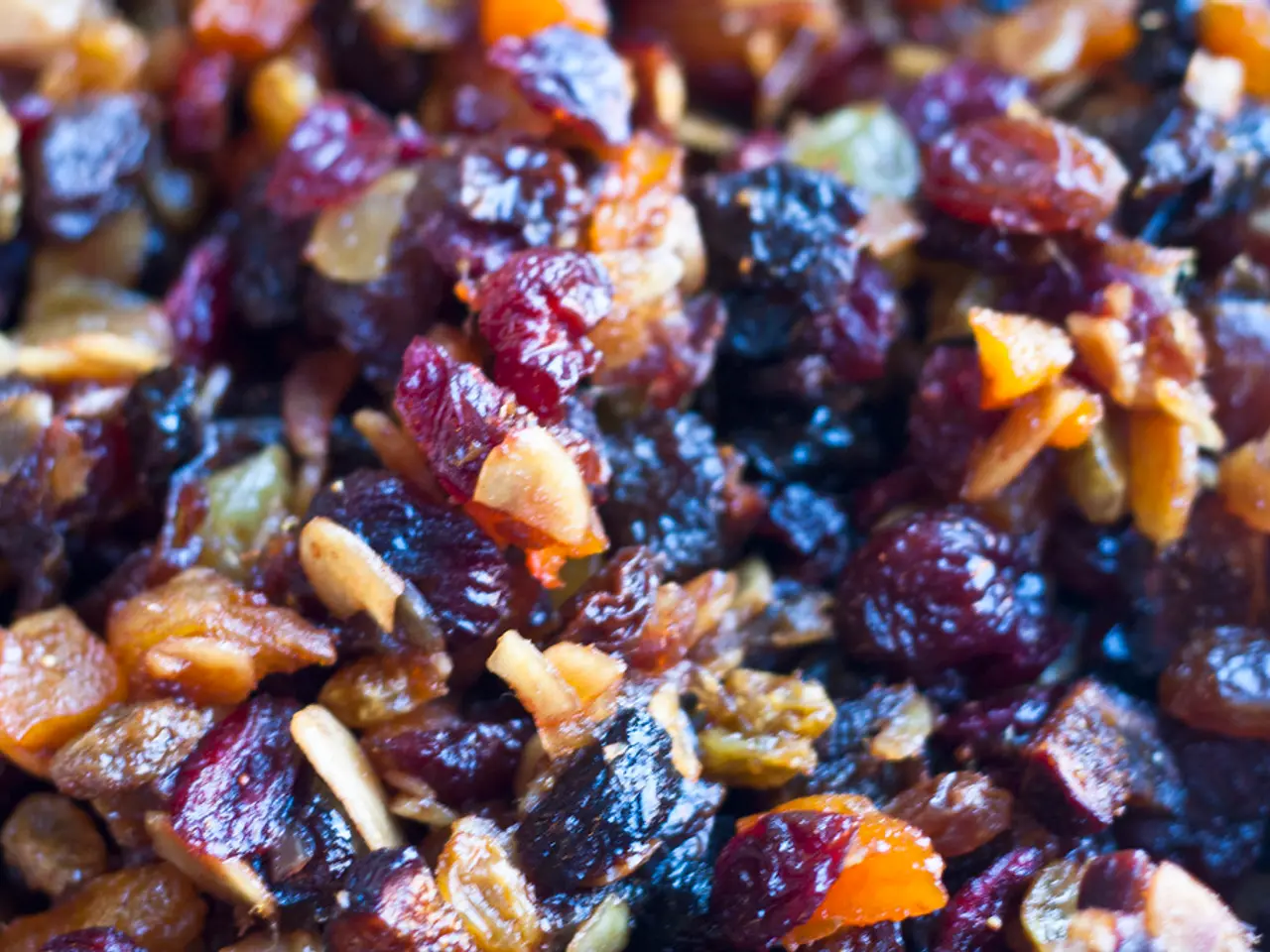Carbohydrates' role: A rundown of key facts
In our daily lives, carbohydrates play a crucial role as the body's primary source of energy. They serve as the preferred fuel for our bodies, providing the necessary power to keep us going throughout the day.
Carbohydrates can be categorised into two main groups: simple and complex. Simple carbohydrates, which have one or two sugar molecules, include glucose, fructose, sucrose, and lactose. On the other hand, complex carbohydrates, such as brown rice and whole grain bread, release energy slowly and help maintain steady energy levels and a feeling of fullness.
When it comes to maintaining a balanced diet, the emphasis should be on **whole, minimally processed foods rich in fiber and nutrients**. These include whole grains, legumes, fruits, vegetables, starchy vegetables, and nuts and seeds.
Whole grains, like brown rice, quinoa, barley, oats, and whole-grain bread, provide complex carbohydrates that deliver sustained energy and are rich in B vitamins and fiber. Legumes, such as beans, lentils, chickpeas, peas, and peanuts, offer protein, fiber, and help regulate blood sugar and cholesterol levels. Fruits and vegetables, including berries, bananas, apples, broccoli, kale, cauliflower, spinach, and sweet potatoes, supply complex carbohydrates, fiber, vitamins, and antioxidants. Starchy vegetables, such as sweet potatoes and potatoes, provide slow-absorbing carbohydrates that help maintain energy levels over time. Nuts and seeds, like macadamia nuts and pumpkin seeds, contain low net carbs and contribute healthy fats along with fiber.
These carbohydrate sources are preferred because they are complex carbohydrates, which digest slowly, provide longer-lasting energy, help keep blood sugar stable, and promote fullness. In contrast, refined or processed carbs, such as sugary snacks and white bread, lack fiber and nutrients and can cause blood sugar spikes and crashes.
For a balanced diet, carbohydrates should make up about 50-60% of daily energy intake, with an emphasis on fiber-rich whole grains, fruits, vegetables, and legumes. Choosing these "quality carbs" supports healthy aging, disease prevention, and sustained energy levels.
In summary, the healthiest carbohydrate types to emphasize in a balanced diet are:
| Type | Examples | Benefits | |-----------------|-------------------------------------|----------------------------------------| | Whole grains | Brown rice, quinoa, barley, oats | Fiber, sustained energy, B vitamins | | Legumes | Beans, lentils, chickpeas, peas | Fiber, protein, cholesterol regulation | | Fruits | Berries, bananas, apples | Fiber, vitamins, antioxidants | | Vegetables | Broccoli, kale, cauliflower, spinach| Fiber, vitamins, low net carbs | | Starchy veggies | Sweet potatoes, potatoes | Slow energy release, vitamins | | Nuts & seeds | Macadamia nuts, pumpkin seeds | Healthy fats, fiber, low net carbs |
This approach ensures carbohydrate intake supports both energy needs and overall health while minimizing blood sugar spikes and nutrient gaps.
- When consumed, whole, minimally processed foods rich in fiber and nutrients, such as brown rice, quinoa, legumes, fruits, vegetables, and nuts and seeds, provide sustained energy and help maintain steady energy levels.
- The opposition to refined or processed carbs, like sugary snacks and white bread, contains an emphasis on complex carbohydrates, which digest slowly, help keep blood sugar stable, and promote fullness.
- For those aiming for a balanced lifestyle, carbohydrates should constitute about 50-60% of daily energy intake, relying on fiber-rich whole grains, fruits, vegetables, and legumes for optimal nutritional benefits.
- A decision to prioritize "quality carbs" in one's food-and-drink choices supports healthy aging, disease prevention, and sustained energy levels.
- In health-and-wellness and fitness-and-exercise routines, nutrient-dense sources of carbohydrates, like AQ (whole grains), AD (legumes), and MDDi (fruits and vegetables), contribute to overall performance and recovery.




